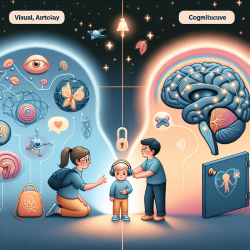Adolescence is a critical period marked by significant emotional and psychological changes. One of the most pressing concerns during this time is the prevalence of depressive symptoms, which can have long-term implications for an individual's mental health. A recent study titled "Parental and individual predictors of trajectories of depressive symptoms in Chilean adolescents" sheds light on how different parenting styles can influence the development and persistence of these symptoms.
The Study at a Glance
This research utilized Growth Mixture Modeling to analyze depressive symptom trajectories in a sample of 1,072 Chilean adolescents aged 12-15. The study identified four distinct trajectories:
- High Persistent: 12% of adolescents experienced consistently high levels of depressive symptoms.
- Low Stable: 56% maintained low levels of symptoms over time.
- High Decreasing: 15% showed a reduction in symptoms.
- Low Increasing: 17% experienced an increase in symptoms.
The research highlighted significant predictors for these trajectories, focusing on maternal warmth, disrespect, demandingness, and adolescent irritability. Notably, maternal warmth emerged as a protective factor against persistent depressive symptoms.
The Impact of Parenting Styles
The study underscores the importance of parenting dimensions in shaping adolescent mental health outcomes. Here are some key takeaways:
- Maternal Warmth: Adolescents who reported higher levels of maternal warmth were more likely to belong to the low stable trajectory group. This suggests that nurturing and supportive parenting can serve as a buffer against depression.
- Maternal Disrespect and Demandingness: These factors were associated with higher odds of adolescents falling into the high persistent trajectory group, indicating that negative parenting behaviors can exacerbate depressive symptoms.
- Adolescent Irritability: This temperamental trait was linked to increased risk for persistent depressive symptoms, emphasizing the need for early intervention and support for irritable adolescents.
A Call to Action for Practitioners
The findings from this study offer valuable insights for practitioners working with adolescents. By understanding the role of parenting styles in mental health trajectories, professionals can better support families in fostering environments that promote emotional well-being. Here are some practical steps practitioners can take:
- Encourage Positive Parenting Practices: Educate parents on the benefits of warmth and support while discouraging disrespectful or overly demanding behaviors.
- Identify At-Risk Adolescents Early: Screen for irritability and other temperamental traits that may predispose adolescents to depression.
- Cultivate Family Communication: Facilitate open dialogues between parents and adolescents to strengthen family bonds and reduce conflict.
This research not only highlights the importance of parenting in adolescent mental health but also serves as a foundation for further exploration into effective interventions. Practitioners are encouraged to delve deeper into this topic to enhance their understanding and improve outcomes for young people.










